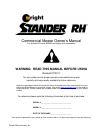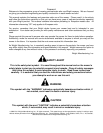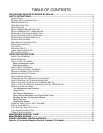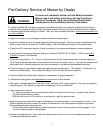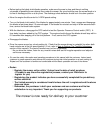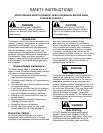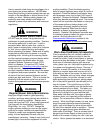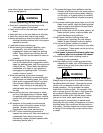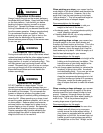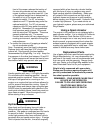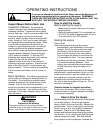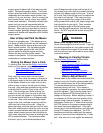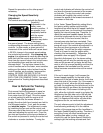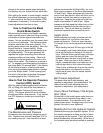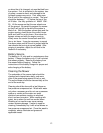
1
Pre-Delivery Service of Mower by Dealer
If you are not completely familiar with the Safety Instruction
Manual read it now before proceeding with the Pre-Delivery
Service of the mower. Only your authorized Wright dealer
should perform the Pre-Delivery Service of the mower.
The Wright Stander RH is shipped completely assembled and has been adjusted and tested at the factory.
However, due to jostling during the shipping process and the delivery time lapse the following items need to
be repeated again before starting the mower. After you have uncrated the mower, follow these procedures in
the order indicated:
• Inspect the mower for any damage, unusual conditions or missing parts.
• Inspect the mower for all of its decals, especially the warning decals. There should be one blade warning
decal on each side of the deck, the “shield missing” under the blade belt covers, and the dash decal.
• Check (and fill if necessary) engine oil level according to the engine manufacturer’s recommendation.
• Check (and fill if necessary) hydraulic fluid level. Use fully SYNTHETIC oil: Mobil-1 15W-50 (see Hydro
Check/Fill section of this manual).
• Check rear tire pressure – 18 – 22 psi. is recommended. Use the higher pressures for heavier operators.
Front Casters are equipped with non-pneumatic tires and do not require any air. Lowering tire pressure will
affect deck pitch. Always check pitch any time tire pressure is set below recommended pressures.
• Check the battery to see that the cables are tight and connected properly. The battery is 12 volts and is a
maintenance-free battery. Only charge the battery if it will not start the mower properly.
• Check the Rapid-Hite deck height adjustment mechanism for proper operation.
• Lubricate all moving parts (see Maintenance Items section of this manual).
• Add regular unleaded gasoline to fuel tank. (use a minimum of 87 octane gasoline) (You may use gasoline
containing up to 10% ethanol and gasoline containing up to 5% of methanol.)
•
Check brake safety interlock.
Try starting the engine with the parking brake released. (Engine should not start. If engine starts, service
the parking brake locking system)
With the hand controls in the middle or neutral position, apply the parking brake.
• Start the engine according to the engine manufacturer’s recommendation. Let the engine run at low - mid
RPM for several minutes to ensure the engine oil reaches all of the engine parts and gets the hydraulic
fluid circulating through the pumps, etc.
Check if the parking brake locking system prevents the units from being driven while engaged. If not,
service the parking brake locking system.
• Release the parking brake. Next, move the hand control levers, one at a time, to make the wheels move
in forward and backward rotation.
WARNING



